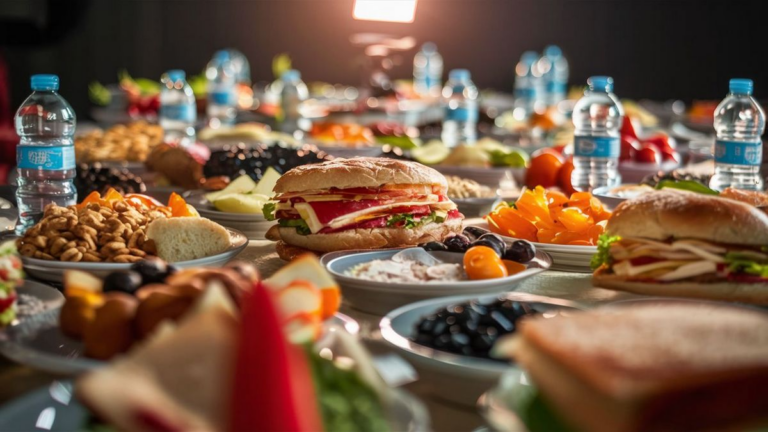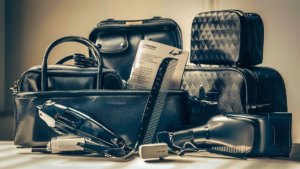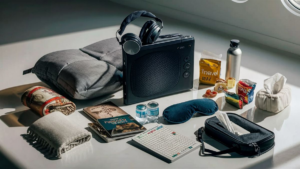When it comes to air travel, there are often questions about what items passengers are allowed to bring on board, particularly when it comes to food. The rules and regulations surrounding bringing your own food on a plane can vary depending on the airline, the type of food, and even the destination. Here, we’ll delve into the ins and outs of bringing your own food on a plane.
Understanding Transportation Security Administration (TSA) Regulations
The Transportation Security Administration (TSA) oversees security screening at airports in the United States. While the TSA primarily focuses on security screening for passengers and their carry-on items, it also has guidelines regarding food items.
Permissible Food Items
The TSA generally allows passengers to bring their own food on board. This includes items such as sandwiches, snacks, fruit, and non-alcoholic beverages in containers of 3.4 ounces (100 milliliters) or less. These items must be placed in a clear, quart-sized plastic bag and presented separately during security screening.
Prohibited Food Items
While many food items are allowed, there are some exceptions. Liquids, gels, and aerosols exceeding 3.4 ounces (100 milliliters) are prohibited unless they are in containers that meet the TSA’s liquid restrictions and are placed in the quart-sized bag. Additionally, certain foods may be subject to additional screening or prohibited altogether, especially if they appear suspicious or pose a security risk.
Airline Policies
In addition to TSA regulations, individual airlines may have their own policies regarding bringing food on board. While most airlines allow passengers to bring their own food, there may be restrictions on certain types of food or beverages. It’s essential to check with your airline before packing your own food to ensure compliance with their policies.
Special Dietary Needs
Passengers with special dietary needs, such as food allergies or restrictions, may need to take extra precautions when bringing their own food on a plane. In some cases, it may be necessary to notify the airline in advance to request accommodations or to ensure that any food brought on board meets their dietary requirements.
Benefits of Bringing Your Own Food
Bringing your own food on a plane can offer several advantages. Firstly, it allows you to have more control over what you eat, which can be especially important for passengers with dietary restrictions or preferences. Additionally, packing your own snacks or meals can be more cost-effective than purchasing food at the airport or on the plane.
Healthy Options
For passengers looking to maintain a healthy diet while traveling, bringing your own food can provide access to nutritious options that may not be available on board or at the airport. Packing items such as fresh fruit, vegetables, nuts, and homemade sandwiches can help ensure that you have healthy choices throughout your journey.
In summary, passengers are generally allowed to bring their own food on a plane, subject to TSA regulations and airline policies. By understanding the rules and planning accordingly, you can enjoy the convenience and benefits of bringing your own food while traveling. Whether you’re looking to save money, accommodate dietary needs, or simply enjoy your favorite snacks, packing your own food can enhance your travel experience.
Frequently Asked Questions
Here are some common questions regarding bringing food on a plane:
| Question | Answer |
|---|---|
| Are homemade meals allowed? | Yes, homemade meals are generally allowed, but they must comply with TSA regulations and airline policies. |
| Can I bring food from outside the airport? | Yes, you can bring food from outside the airport, but it must pass through security screening. |
| Are there restrictions on the types of food allowed? | While most food items are permitted, certain foods like liquids, gels, and aerosols may have restrictions. |
| Can I bring alcoholic beverages? | Alcoholic beverages are generally not allowed in carry-on bags unless purchased after the security checkpoint. |
Bringing Food for Children
Parents traveling with children may wonder about bringing food for their little ones. Most airlines are accommodating when it comes to bringing baby food, formula, breast milk, and snacks for infants and toddlers. It’s advisable to pack these items in quantities sufficient for the duration of the journey.
Additional Tips
Here are some extra tips for bringing food on a plane:
- Consider the duration of your flight and pack accordingly to ensure you have enough food.
- Opt for foods that are easy to eat and not messy to avoid inconvenience during the flight.
- Keep in mind any potential customs restrictions if you’re traveling internationally with food items.
See also:






